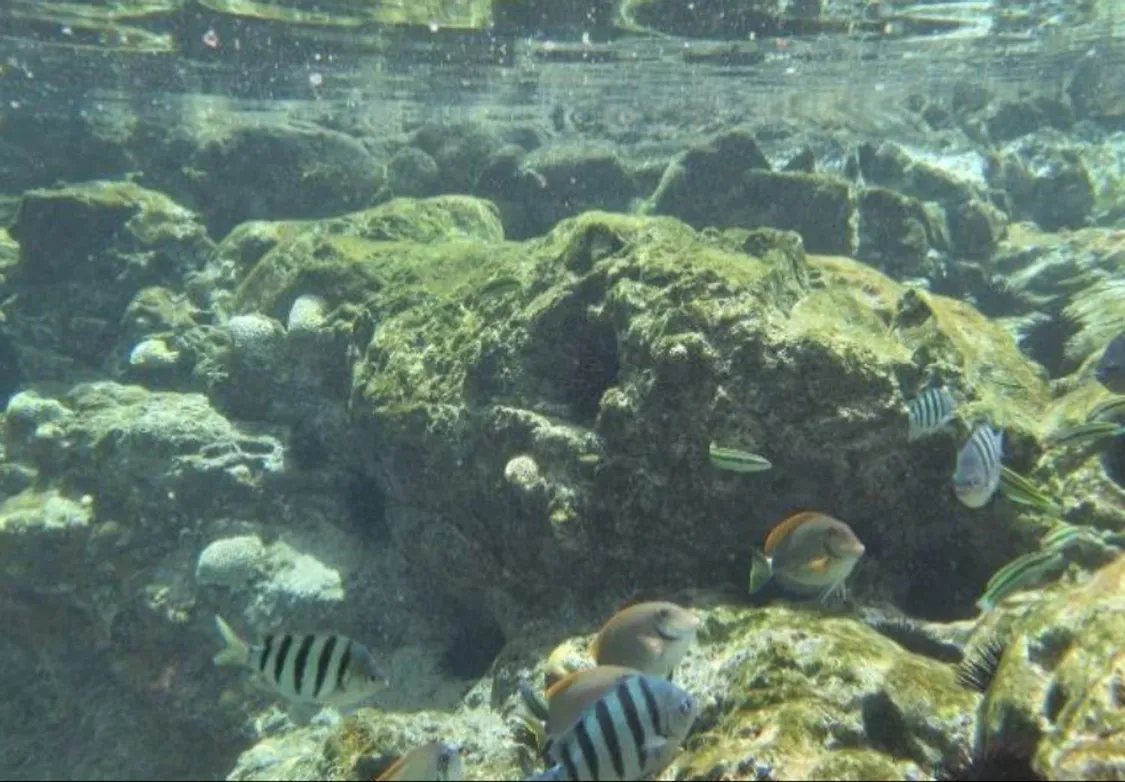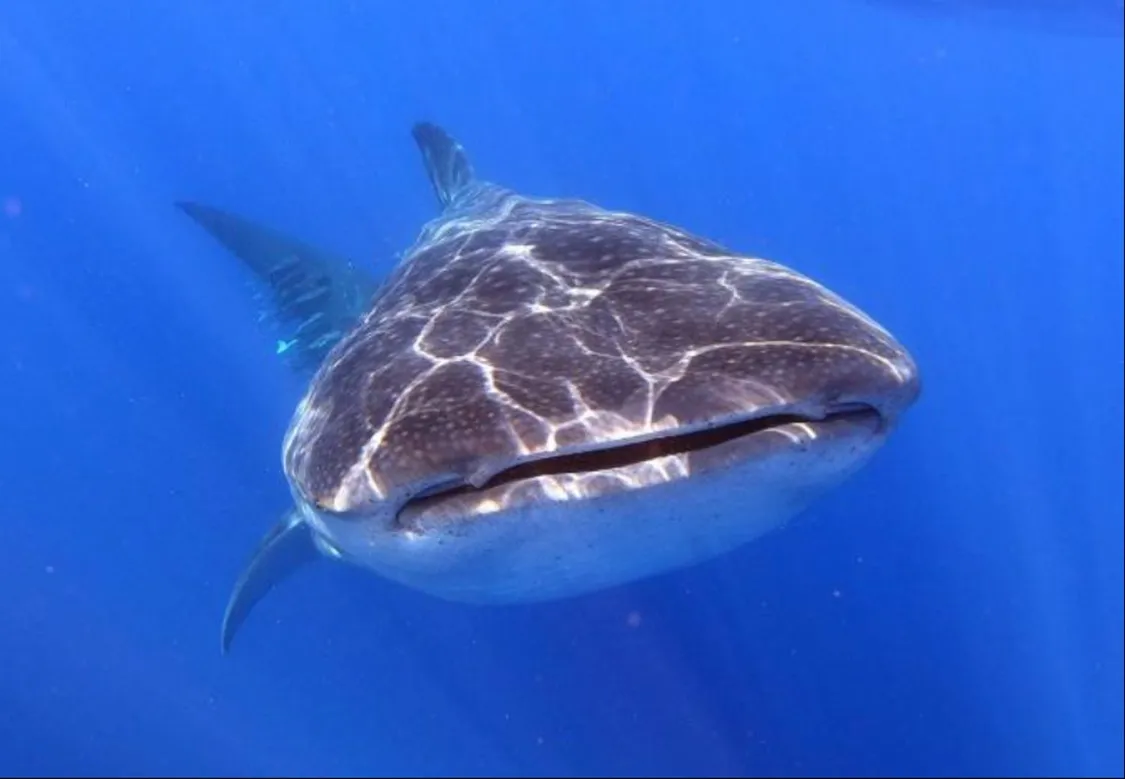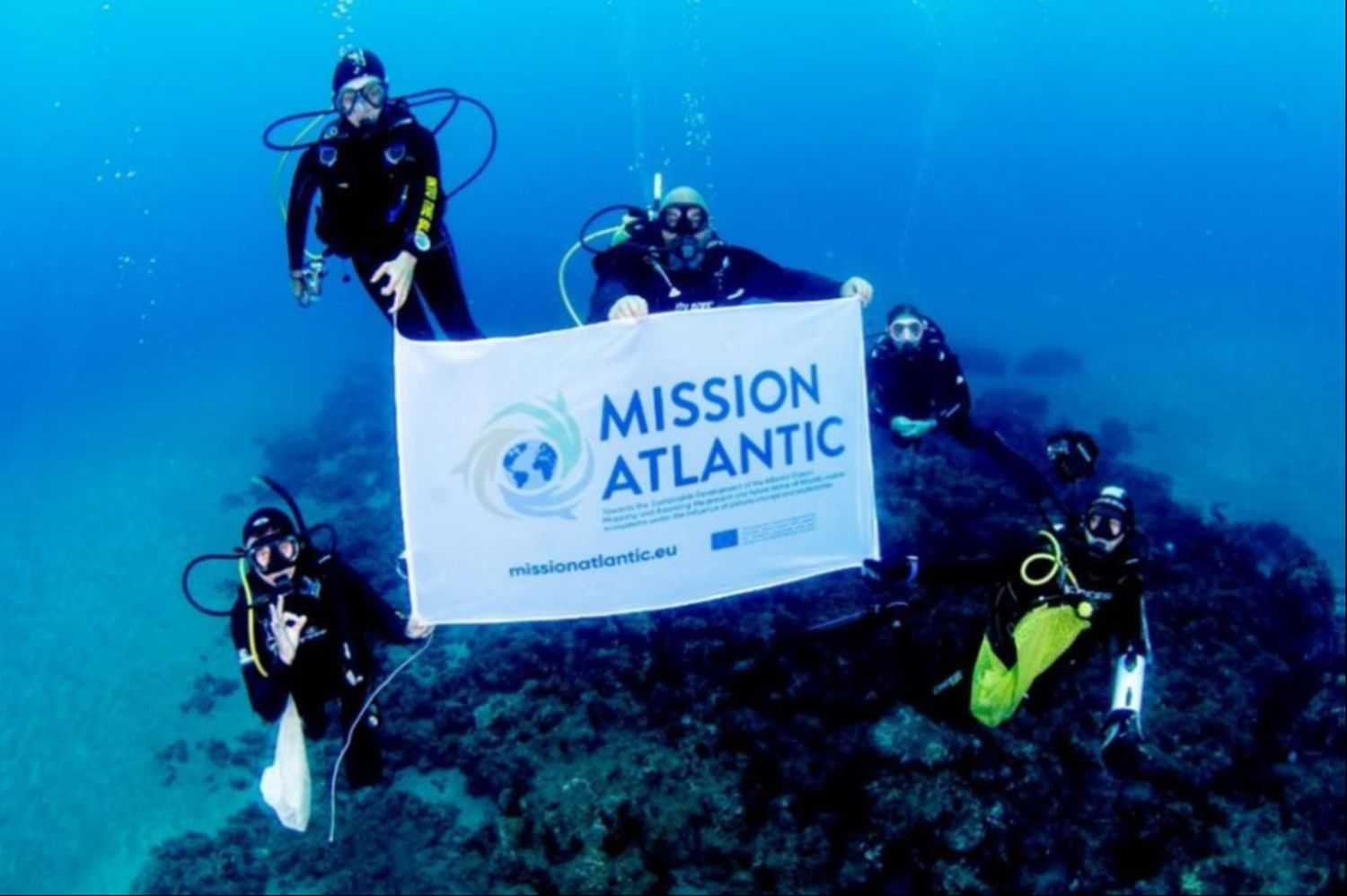By Silvia Chemello (CIIMAR)
The Mission Atlantic expedition to St. Helena proved to be a remarkable effort, accomplishing its goals of collaboration and fieldwork. Through fruitful partnerships with the St. Helena Government, the expedition generated valuable data, shedding light on the dynamics of the island's marine ecosystem.
From January 21 to February 4, 2023, the Mission Atlantic team embarked on an exciting journey to the remote island of St. Helena. With the primary goals of enhancing collaboration with the St. Helena Government Marine and Fisheries Conservation team and conducting underwater fieldwork, this dedicated expedition also yielded invaluable insights into the island's rich marine ecosystem.
Revealing the Underwater Wonders: The Mission Atlantic team carried out a multitude of underwater fieldwork activities to conduct an extensive sampling of St. Helena's marine habitats. To assess the abundance, biomass, and functional diversity of reef fish in shallow waters (0–20m deep), underwater visual censuses were conducted, covering a total of 60 transects. Focal animal sampling techniques allowed the team to closely study the feeding behavior of 65 individuals of the endemic butterflyfish. Furthermore, 52 remote underwater videos were captured to explore fish bite rates and other behaviors, offering fascinating glimpses into their underwater lives.
The team employed 260 photoquadrats to evaluate the benthic percent cover, unveiling the composition and health of the reef ecosystem. The collection of 154 individuals representing 33 fish species provided valuable tissue samples for genetic analyses, enabling insights into connectivity and evolution among St. Helena's marine species. Preserving whole specimens in formaldehyde ensures their availability for future research and education, allowing them to be stored and displayed in natural history museums. Additionally, the team conducted dietary analyses by processing and storing the stomach contents of 38 individuals across five species.

Fishes of Lot’s Wife’s Ponds (Photos: SR Floeter)
By utilizing standardized sampling methods comparable to other oceanic islands in the Atlantic, the team aims to make comprehensive comparisons, unraveling the unique characteristics of St. Helena's marine environment. The expedition also included two community talks at the St Helena Public Library, extending the expedition's impact beyond the scientific community and involving the general public in marine conservation endeavors.

Whale shark observation at Barn Ledge (Photos: SR Floeter)
